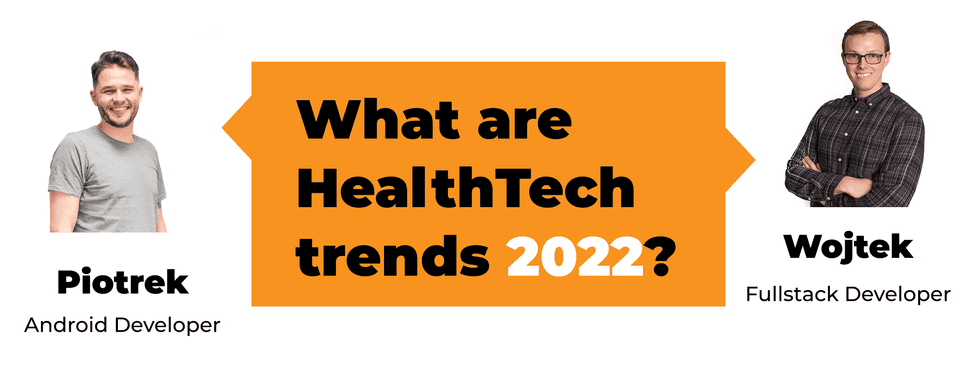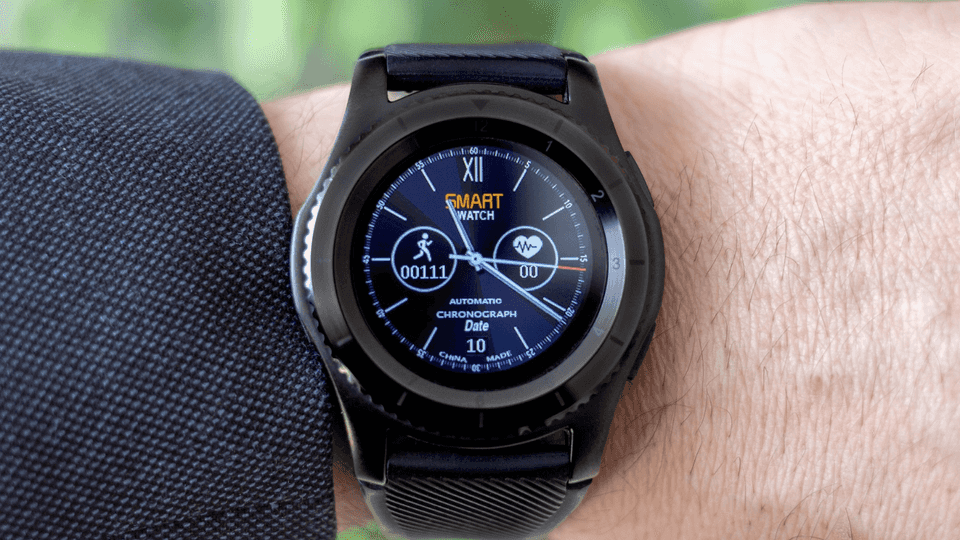Technology Trends in Healthcare for the Year 2022 (and far beyond)
Artificial Intelligence will tell you that you are depressed. Your watch will notify you that you might have an arrhythmia. Technology offers help for overloaded doctors. But will they accept it? These are software healthcare trends for 2022 and – to be honest – actually for the whole decade.
We’ve asked software developers from Bright Inventions about 2022 trends in the healthcare industry. Check out what to expect not only in 2022 but also in upcoming years.

Artificial Intelligence will cover diagnostics
Wojciech (Fullstack Developer):
Right now everyone can experience the changes in healthcare that were accelerated by the pandemic. We have telemedicine which enables us to contact the doctor via phone, chat or video stream. So, the change has started, but that is really the beginning.
Yes, the real valuable eHealth offer for patients will come up within the next 5 years. And 2022 may be crucial here. This is the year when we will globally understand that changes caused by the pandemics are not temporary and that we need to go further with the healthcare digital transformation.
I think that in the next couple of years Artificial Intelligence will become a huge part of the diagnostic process. The recent studies have shown that AI can tell when somebody has depression before the person even realises about their issue. Also, AI can support preventing diseases regarding the blood circulation which are one of the leading causes of death globally.
Let’s make it clear. AI might sound scary but it is nothing new. AI is well utilised in automotive, banking or marketing sectors. Yet in such a crucial healthcare sector, we are globally falling behind.
Technology will make public healthcare cheaper (if governments want so)
Piotr:
Right now we have many wearable healthcare devices e.g. watches or continuous monitoring devices that monitor our vital signs. I do not say that all of them work perfectly but there are brands that definitely lead the way here.

So we have healthcare devices. And we have software. Now, these systems will have to be certified. The ball is in the government’s court which has to approve new systems and educate doctors, who can still be afraid of this healthcare digital transformation. They need to prepare the standards to be followed by producers in the country or maybe for the whole political region like the European Union. We all know that prevention is better and cheaper than cure so public healthcare systems should include more and more IT systems for diagnostics.
Thinking far more in the future I see the possibilities for people to have some dedicated cameras installed in the house in order to constantly monitor their vital signs. Unfortunately, this sounds like something accessible to wealthy people only. I am afraid that these types of diagnostics devices won’t be available broadly. And that is another role of the governments around the world to make it more accessible.
Taking care of yourself will be a game
Wojciech:
We all know how essential it is to keep up with regular doctor checkups. However, it doesn’t mean that we visit our doctor regularly. eHealth can offer a pretty attractive alternative to people who avoid doctors or simply do not have access to them. The solution might be gamification. Nowadays we can see the enormous popularity of watches counting our steps. Taking famous 10k steps a day has become a global challenge engaging people around the world. We love to have devices that analyze our sleep, burnt calories or pulse.
We should take a step further. Imagine software that monitors your condition 24 hours a day and notifies you that you might have arrhythmia and you should go to a doctor. Or it can even directly send data to your doctor who can remotely evaluate if you should have a check-up.
The notification from your watch saying that you might suffer from a certain disease can be more persuasive than a typical medical pamphlet found at doctor’s offices that says: you should go to annual check-ups. People are becoming more and more numb to communication like that. Yet they might be more engaged in the game when they are a part of a community and get some kind of reward. For example: when you go for mammography, you get a badge which you can share online to promote your healthy approach. I truly believe that a well-organised gamification system can promote healthy habits and make doctors’ work lighter.
In the end, thanks to technology you can monitor your vitals constantly which any doctor has a possibility to do.
Presented trends are not just some fantasy stories of people that are tech enthusiasts (but yes, we are). It is essential to move medicine into 21 century. We are in the middle of challenging times. There is a rise of people suffering from mental diseases, circular diseases, infertility and more. At the same time, there are not enough doctors to help them. Public healthcare can only face these challenges by implementing technology. It is now or never!


